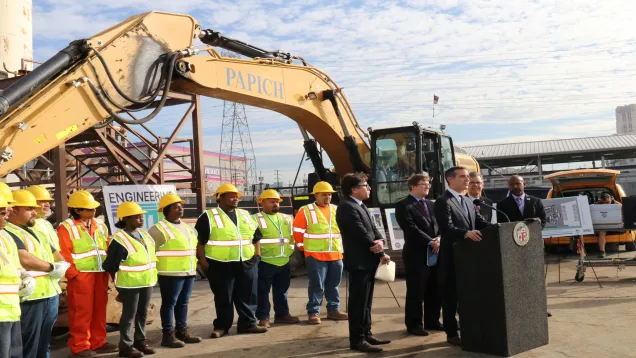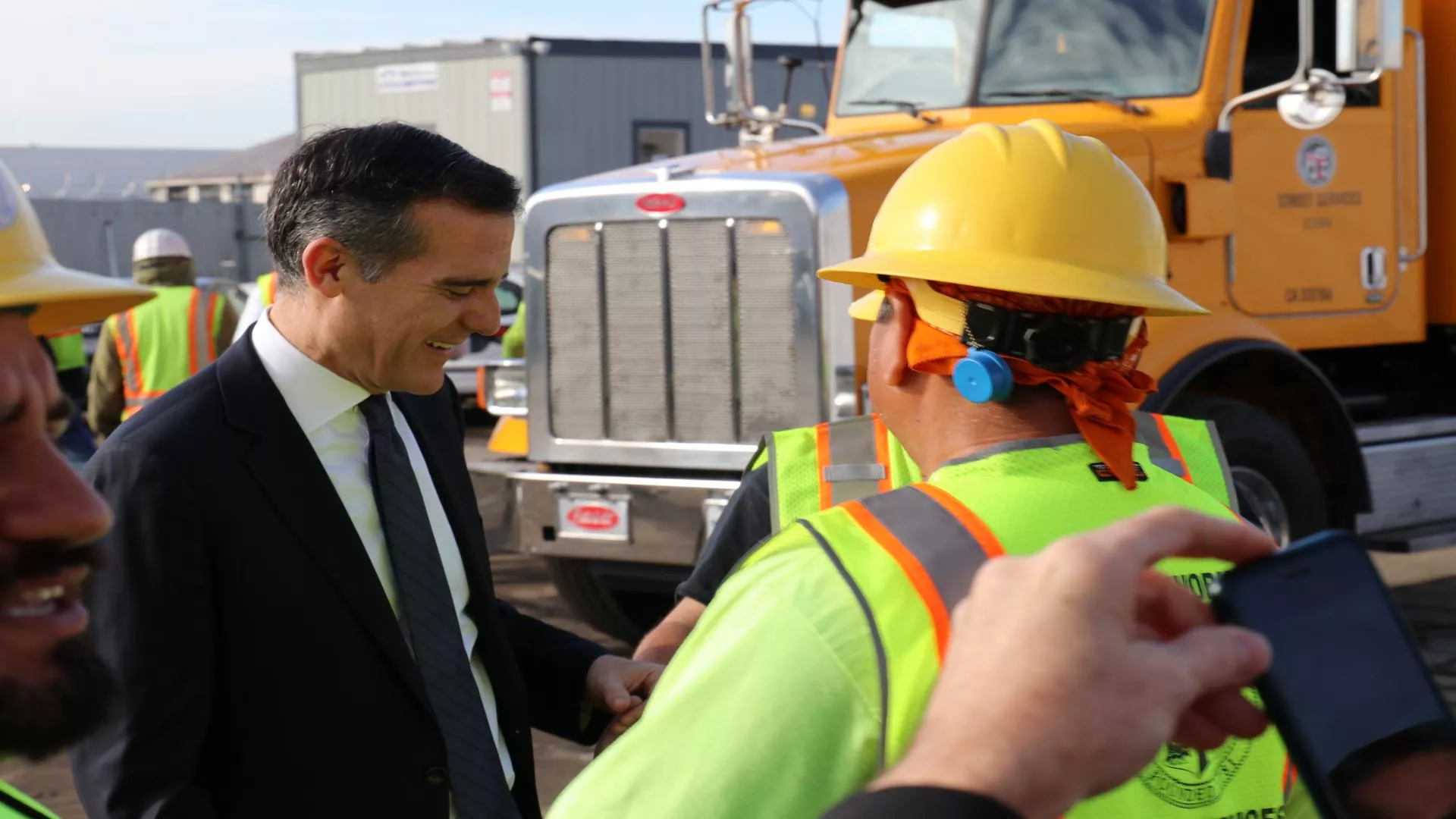
Mayor Eric Garcetti broke ground today on a new, 21st century asphalt plant, a facility that will save taxpayers around $5 million a year and produce more environmentally-friendly paving for L.A.’s 28,000 lane miles of streets.
The Mayor was joined by Councilmember Jose Huizar, the Los Angeles Board of Public Works, and the Bureau of Street Services to kick off the $38 million project. When completed by the end of 2018, it will replace the 1940s-era Asphalt Plant No. 1 with a high-efficiency facility that will increase production from 175,000 tons per year to as much as 700,000 tons, at a savings of $28 per ton.
“When we talk about getting L.A. back to basics, nothing could be more fundamental than ensuring that the streets we rely on to get around the city are safe and dependable,” said Mayor Garcetti. “This new plant is a clear example of how L.A. is taking big steps to improve services while keeping our commitment to minding the bottom line and protecting the environment in everything that we do.”
The project showcases the data-driven, fiscally responsible focus on infrastructure that has defined Mayor Garcetti’s tenure. The new plant will use 50 percent recycled asphalt material, up from 7 to 12 percent in the current mix. Recycled asphalt is more environmentally responsible and sustainable, and its increased use will reduce the City’s reliance on expensive and energy-intensive raw materials. The recycled material will come from the City’s own streets as they are repaved.
The plant’s operations will meet or exceed the latest air quality standards of the South Coast Air Quality Management District, and the low-impact design will significantly reduce pollutants from stormwater runoff — all at a far lower cost per ton of asphalt than the plant’s 70-year-old predecessor.
The new plant is expected to last a minimum of 50 years and to pay for itself in about seven. The plant will supply a majority of the City’s paving needs and reduce dependence on the open market for asphalt, where large cities often pay high prices.

“This is a win-win for the City and for taxpayers,” said Board of Public Works President Kevin James. “These important upgrades give us the capacity to produce a much larger amount of recycled asphalt, which is a more environmentally responsible product, and at a significant savings. Producing our own asphalt allows us to guarantee price and quality, enabling us to meet more stringent environmental standards and maintain more of our roads.”
At the groundbreaking event, Mayor Garcetti also announced other milestones for public works in the City, including:
The City has paved a record 2,400 lane miles in each of fiscal years 2014-15 and 2015-2016, for a record total of nearly 8,500 lane miles to date during this administration.
Since April 2014 and under normal weather conditions, the turnaround time to complete a pothole repair has been an average of less than three working days, down from about a week.
By emphasizing customer service and connecting crews in the field directly to the My311 app, the City can respond to 311 requests more quickly.
“This state-of-the-art asphalt plant reflects our commitment to make the most of our resources by emphasizing efficiency, service, and technological innovation,” said City Engineer Gary Lee Moore.
In the most recent State of the Streets report, from 2015, 46 percent of the City’s road surface was in a state of good repair, up 10 percentage points for residential streets and five points overall since 2005. These improvements position the City to make the most of future support for road repairs — such as local return funds from Measure M, which voters passed in November.
In December 2015, the Bureau of Street Services received the 2015 James Sorensen Award for Excellence in Pavement Preservation, presented to agencies that use the most innovative pavement management practices.